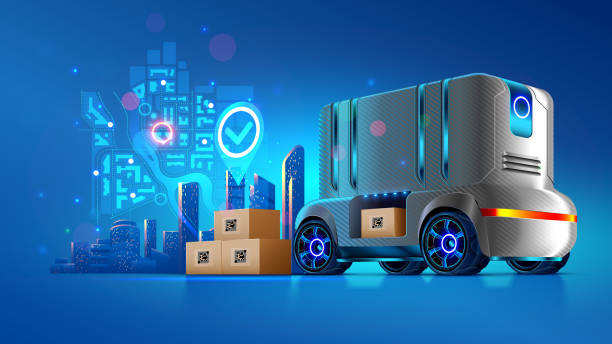In the fast-paced world of business, staying ahead of the competition requires embracing innovative solutions. One area that has become increasingly pivotal is last-mile logistics technology. In this article, we will delve into the reasons why businesses are increasingly recognizing the need for advanced logistics technology, especially in the last mile of the supply chain.
The Last Mile Challenge
The Final Stretch Matters
The last mile of the supply chain is often the most challenging and expensive. It involves delivering goods directly to the end consumer, making it a critical component of the entire logistics process. Businesses are realizing that optimizing this stage can lead to significant cost savings and improved customer satisfaction.
Customer Expectations on the Rise
With the rise of e-commerce giants and the shift towards online shopping, customer expectations for swift and reliable deliveries have skyrocketed. Businesses must adapt to this evolving landscape by employing advanced last mile logistics solutions to meet and exceed customer expectations.
The Benefits of Last Mile Logistics Technology
Enhanced Visibility
Investing in last mile logistics technology provides businesses with real-time visibility into their supply chain. This visibility allows for better tracking of shipments, enabling businesses to promptly address any issues that may arise during the delivery process.
Route Optimization for Efficiency
Efficient route planning is crucial in the last mile. Advanced logistics technology utilizes algorithms to optimize delivery routes, minimizing travel time and reducing fuel costs. This not only benefits the environment but also contributes to cost savings for businesses.
Improved Customer Experience
In the age of instant gratification, customers appreciate transparency and flexibility in delivery options. Last mile logistics technology allows businesses to offer features such as real-time tracking, accurate delivery time estimates, and alternative delivery locations, enhancing the overall customer experience.
Industries Embracing Last Mile Logistics Technology
E-commerce Giants Leading the Way
E-commerce giants have been at the forefront of adopting last-mile logistics technology. With the sheer volume of online orders, companies like Amazon have invested heavily in cutting-edge technology to ensure timely and efficient last mile deliveries.
Retail and Grocery Sectors Catching Up
Traditional retail and grocery businesses are recognizing the need to keep pace with changing consumer habits. Many are now integrating last-mile logistics solutions to offer doorstep delivery services, creating a competitive edge in the market.
Also Read=Revolutionizing Logistics: Unleashing the Power of 3PL Warehouse Systems
Overcoming Challenges in Implementation
Integration with Existing Systems
One challenge businesses face is seamlessly integrating new logistics technology with their existing systems. However, with careful planning and investment in user-friendly solutions, businesses can overcome this hurdle and unlock the full potential of last mile logistics technology.
Cost Considerations
While the benefits are undeniable, businesses must carefully weigh the costs associated with implementing last mile logistics technology. However, it’s essential to view this investment as a strategic move that can yield long-term advantages in terms of operational efficiency and customer satisfaction.
Find here,Inventory management software Skyware Inventory
Future Trends in Last Mile Logistics
Drone and Autonomous Vehicle Delivery
The future of last mile logistics holds exciting possibilities with the introduction of drone and autonomous vehicle deliveries. Businesses exploring these technologies are poised to further revolutionize the last mile, offering even faster and more cost-effective delivery options.
Sustainability as a Key Focus
As environmental concerns take center stage, businesses are increasingly focusing on sustainable last mile logistics solutions. From electric delivery vehicles to eco-friendly packaging, companies are aligning their logistics strategies with a commitment to environmental responsibility.
Conclusion
In conclusion, businesses are recognizing the pivotal role that last mile logistics technology plays in staying competitive and meeting customer expectations. From enhanced visibility to improved efficiency, the benefits are worthwhile. While challenges exist, strategic implementation and a focus on emerging trends will undoubtedly position businesses for success in the dynamic landscape of last mile logistics. Embracing these technological advancements is not just a choice; it’s a necessity for businesses striving to thrive in the ever-evolving world of commerce.
The cloud-based approach ensures accessibility from anywhere, fostering collaboration and enabling quick adaptability to changing market demands. Ultimately, businesses that prioritize last-mile logistics and invest in the right cloud based WMS software gain a competitive edge by delivering products faster, more accurately, and with greater customer satisfaction, driving successlast in the dynamic world of e-commerce.

James Oliver is a professional blogger and a seasoned Content writer for technologyspell.com. With a passion for simplifying technology and digital topics, he provides valuable insights to a diverse online audience. With four years of experience, James has polished his skills as a professional blogger.




